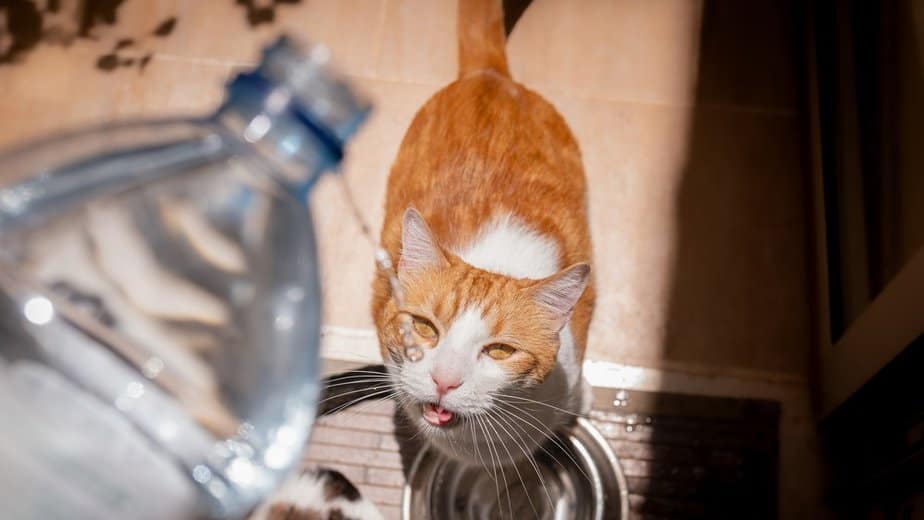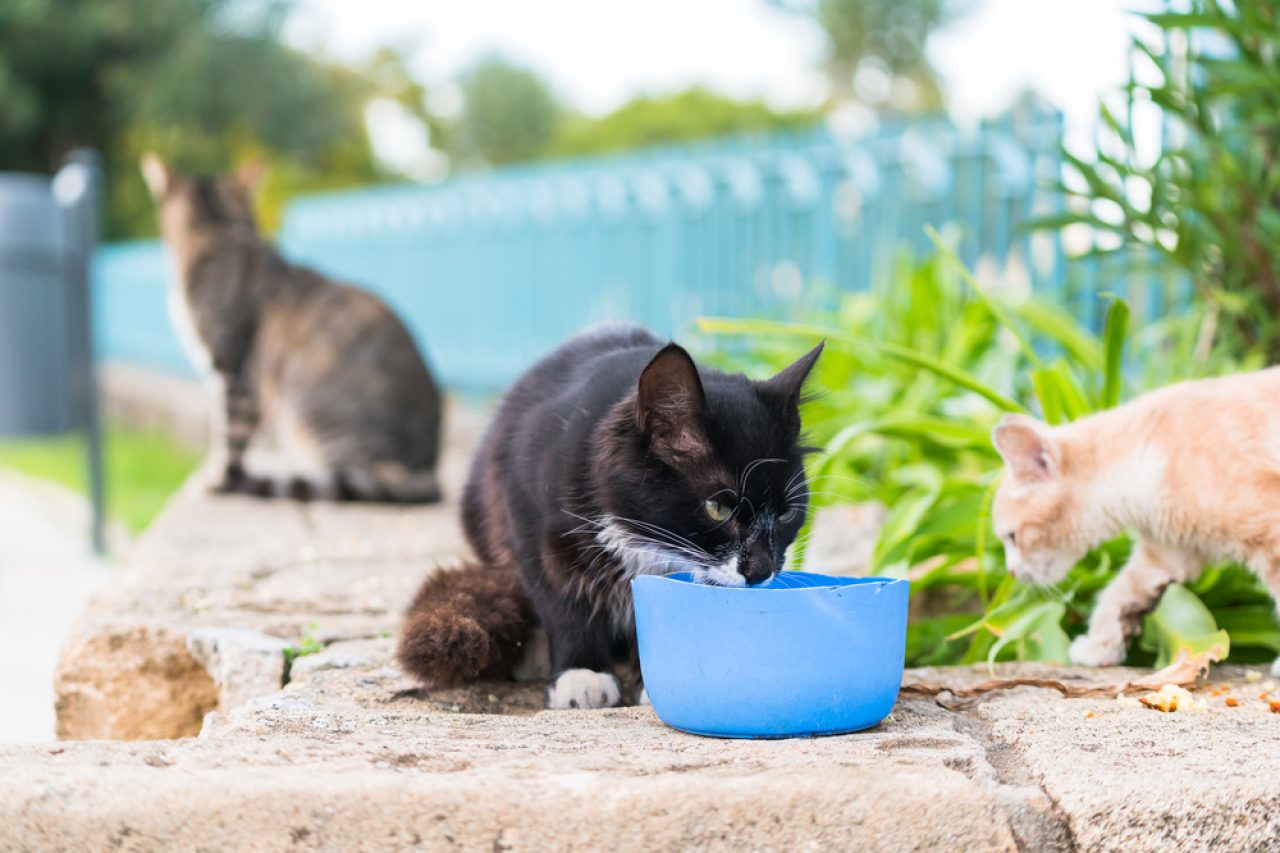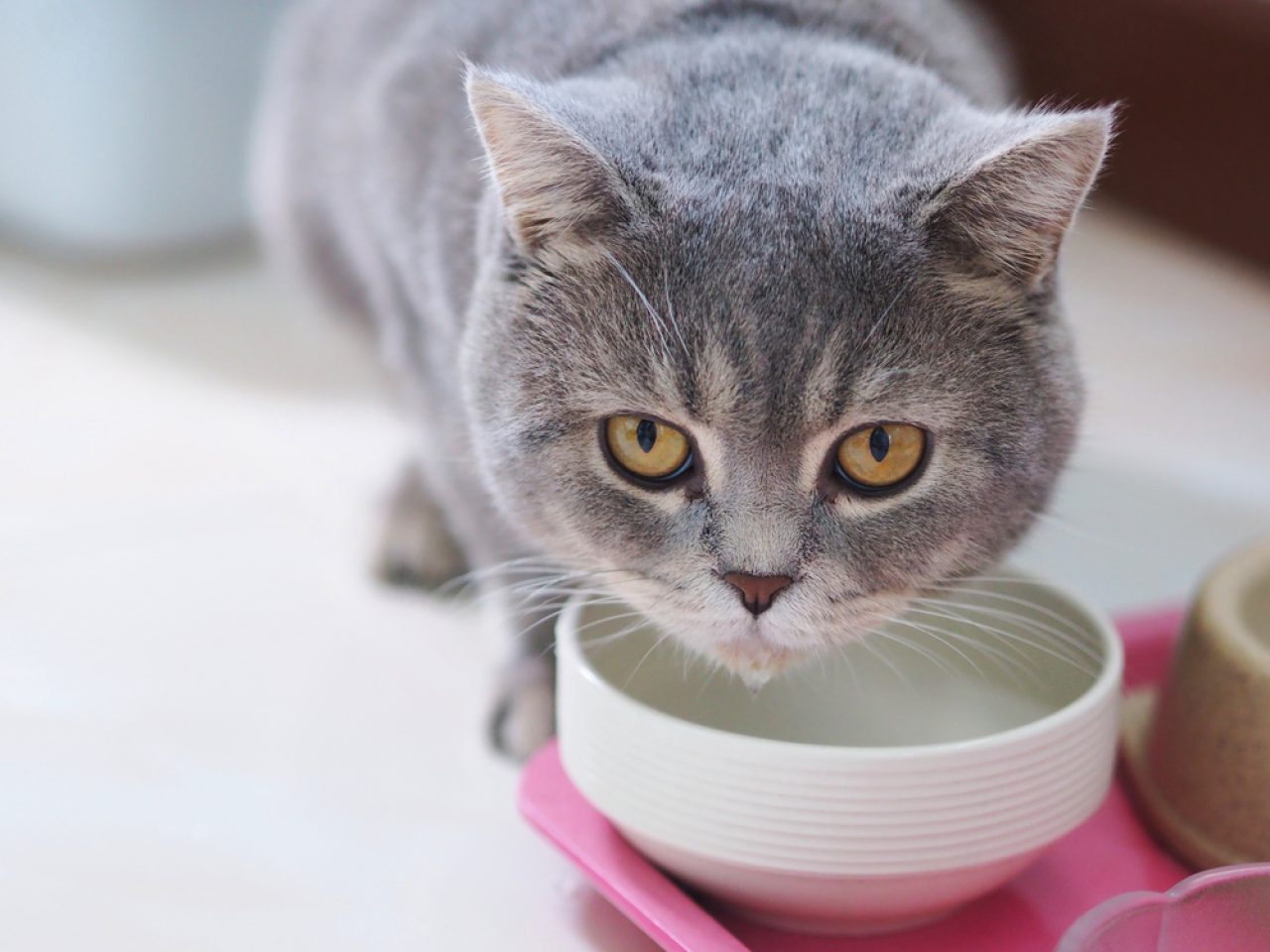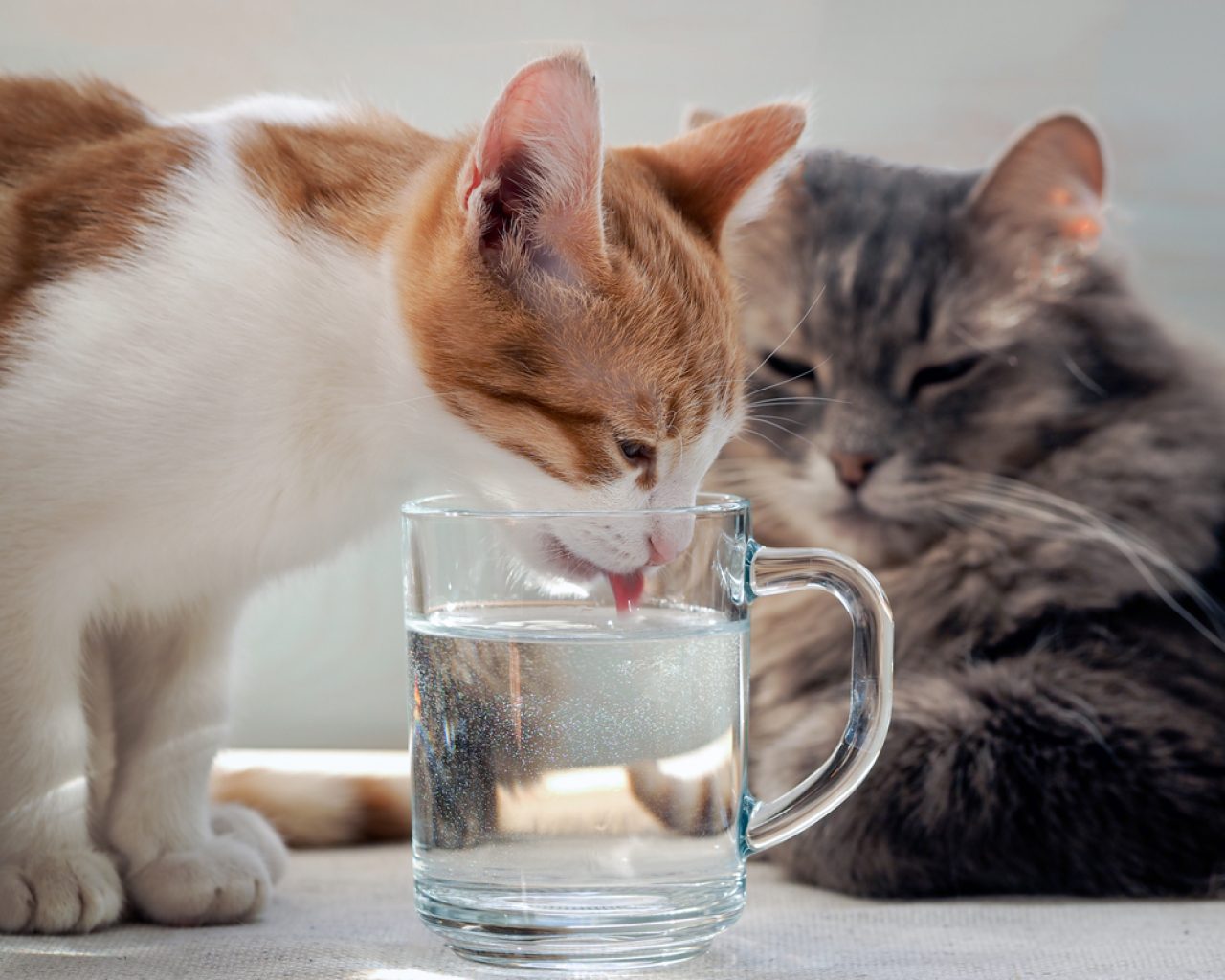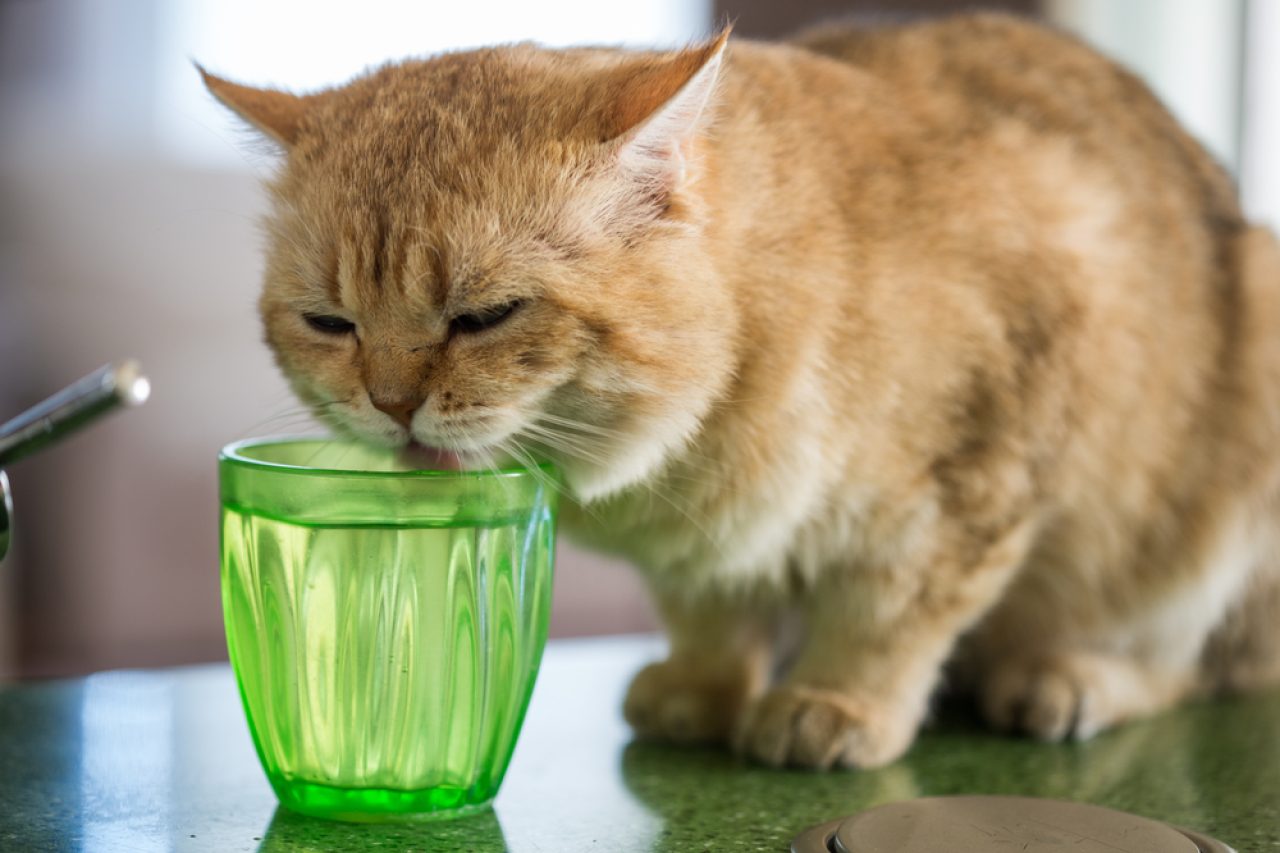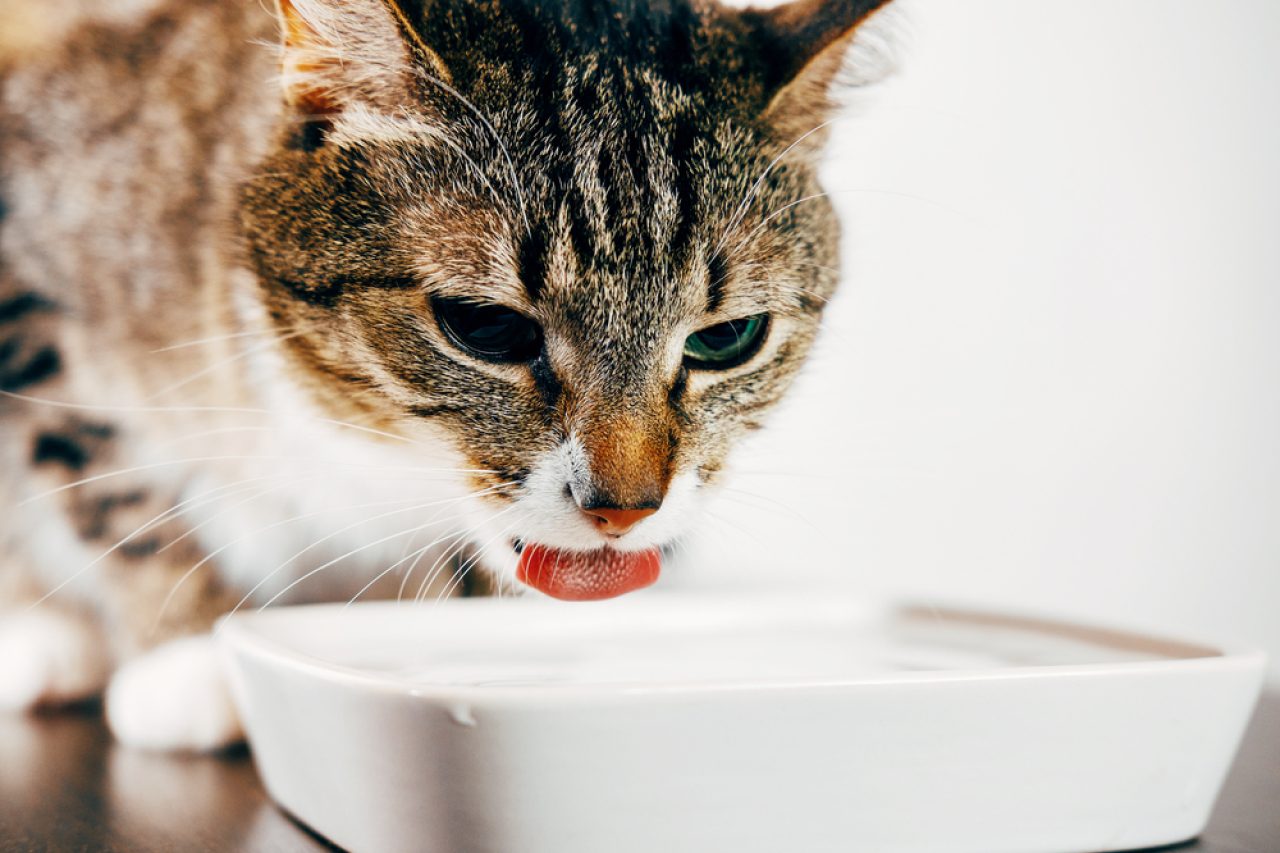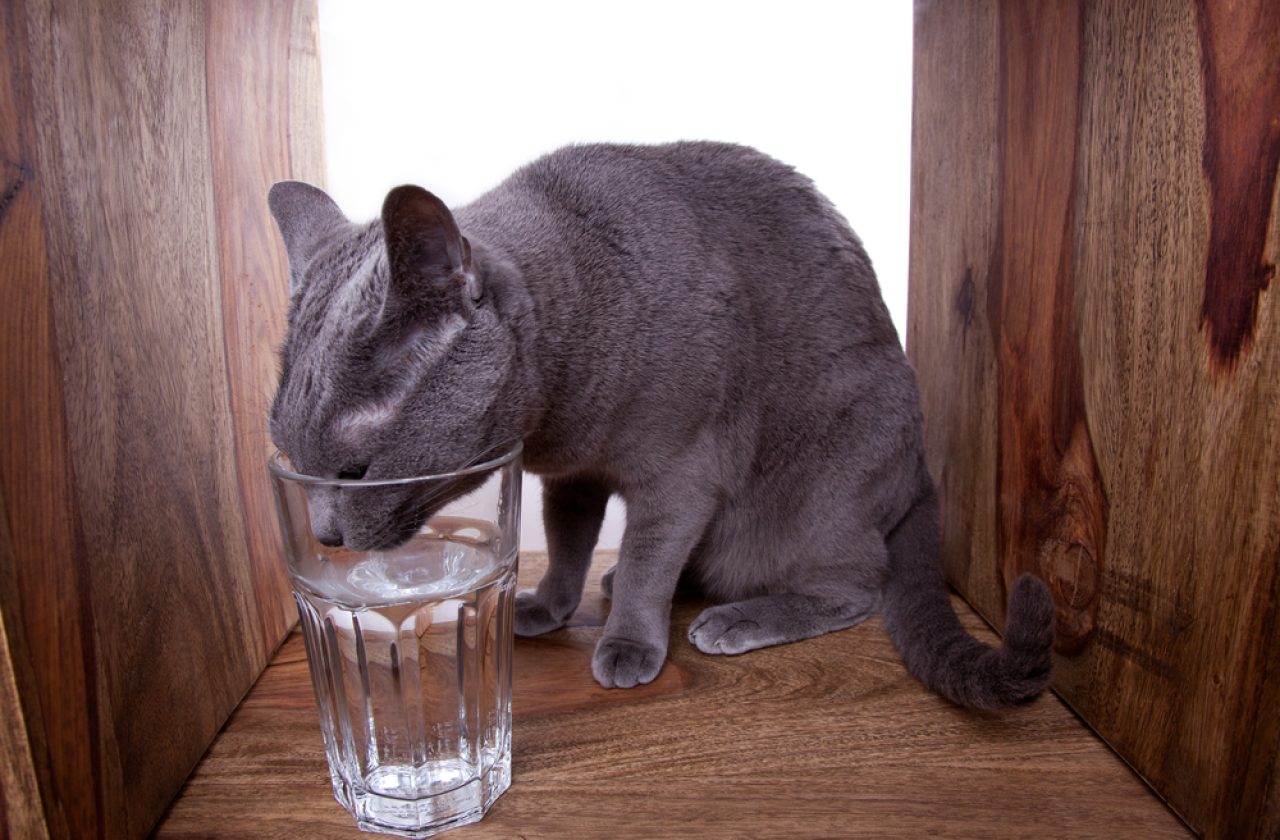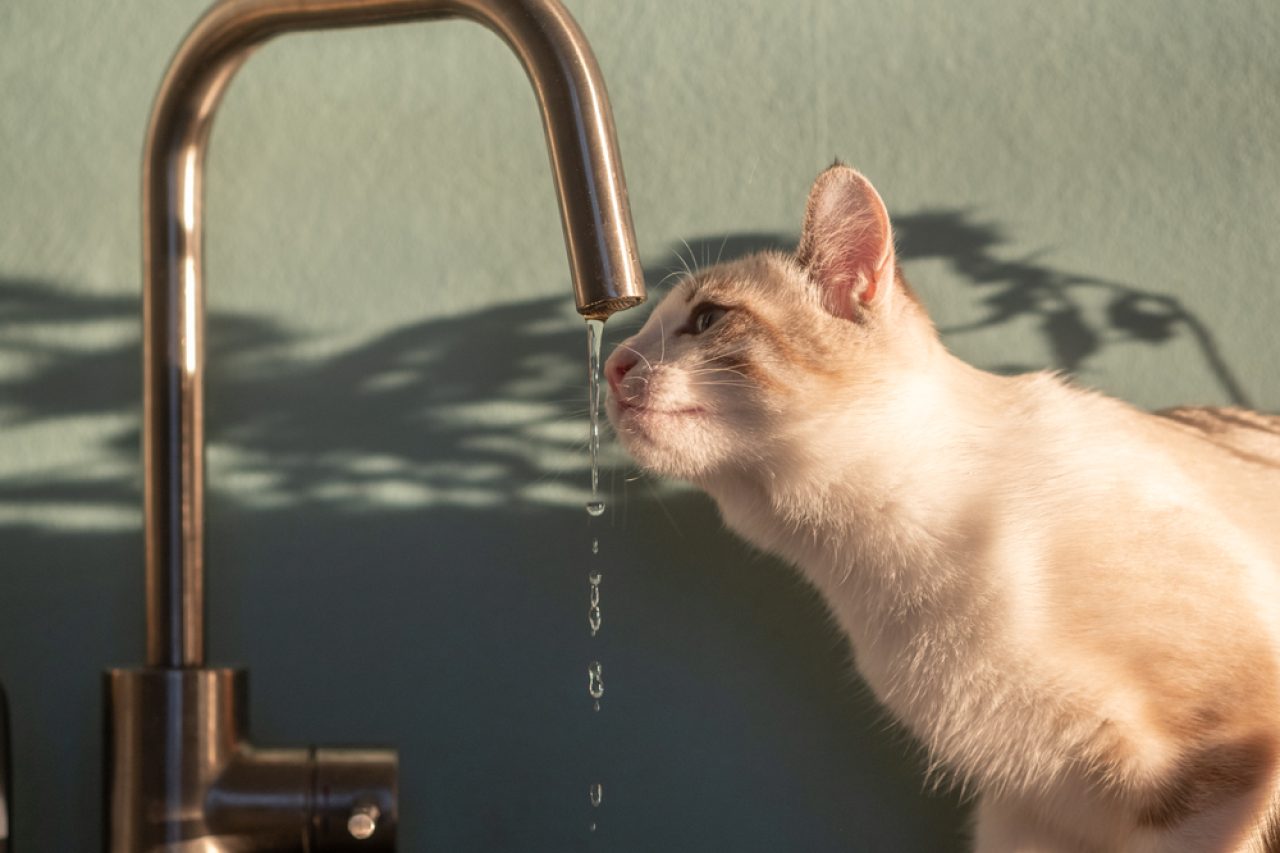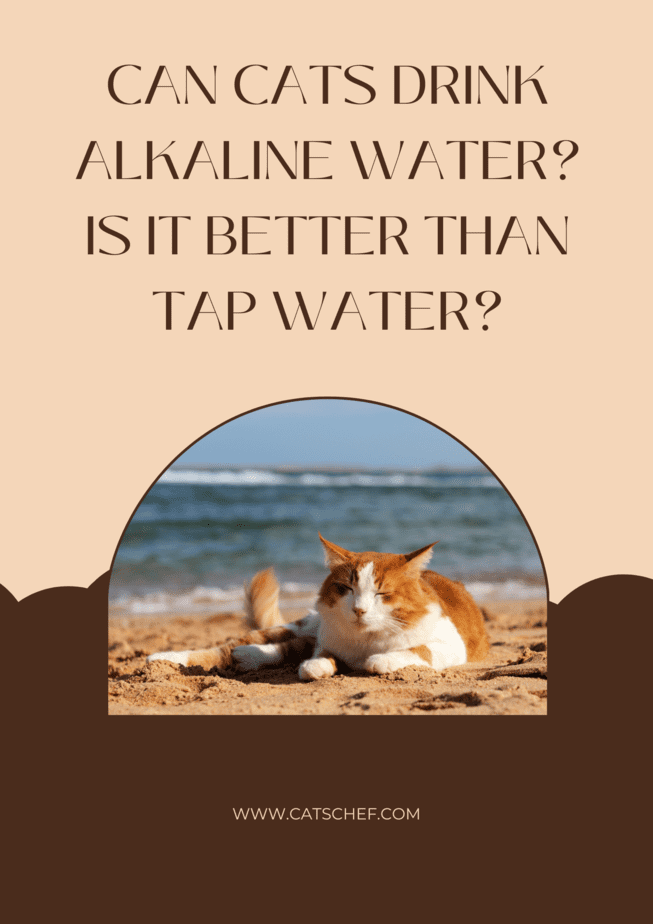📖 Table of Content:
Everyone knows that we must drink up to eight glasses of water daily. Staying hydrated isn’t easy, especially on those hot summer days. We also know felines aren’t really fond of water, but can cats drink alkaline water? That is the question we’re about to tackle.
It’s no secret that they aren’t best friends with this clear liquid. I know hate is a strong word, but they can’t really hide their feelings. However, cat parents often worry about their pets staying hydrated.
People are even buying those expensive water fountains to entice their pets to drink more water. Perhaps you’re doing everything you can but it just isn’t enough.
Those little furry monsters can really be stubborn sometimes. You may think that your pet just isn’t a fan of tap water. It’s just too simple for your little spoiled princess!
Therefore, you might wonder can cats drink alkaline water, and does it perhaps have some health benefits that could improve your pet’s health.
I know you’re willing to try anything in order to get your feline to stay hydrated. Maybe this might help and if it’s packed with health advantages, it might be the real deal.
So, can cats drink alkaline water?
Our pets wouldn’t be so worried about staying hydrated in the wild. Wild cats get enough water by feeding on other animals. That way they always stay hydrated.
But what should you do when your domestic cat’s diet mainly consists of cat-appropriate food which is usually kibble?
Sure, you throw in some of the canned and wet food ever so often. But, is this enough to keep her hydrated? You already said goodbye to tap water because it’s no use so you’re looking for an alternative.
Thankfully, cats can drink alkaline water. However, you shouldn’t overdo this either. Although it has certain health benefits, it should be consumed in moderation.
What is alkaline water?
Alkaline water looks the same as normal, tap water. However, it’s different because it contains a higher pH level than plain water.
The pH scale goes from 0 to 14. Anything with a pH between 0 and 6.9 is acidic, while anything with a pH between 7.1 and 14 is basic.
Cats should ideally consume water that has a pH between 6.2 and 7.0 to lower their risk of urinary tract issues. Alkaline water usually has a pH from 7 to 9.
Therefore, filtered tap water is one of the greatest options for keeping your cat hydrated because distilled water is too acidic for cats and should be avoided.
Use a faucet attachment or pitcher to filter municipal water to get rid of any taste or odor that cats could find repulsive. However, it’s said that alkaline water can offer certain health benefits.
If so, I know you’ll go out of your way and try your best to make your feline lap up some of it. But just how advantageous could it be?
Health benefits of alkaline water
Most believe that alkaline water has a number of health benefits, but more research still needs to be conducted.
Sometimes all you need is a little bit of faith, right? Well, when it comes to our cats – I’ll be honest – no one wants to take any risks.
Therefore, small amounts of alkaline water for your cat here and there won’t be much of a trouble. Your pet would need to drink plenty of it for any damage to be done.
But are those small amounts enough to have a positive impact on your cat’s health? Is it worth it?
1. Can cats drink alkaline water for bone improvement?
It is often said that alkaline water can benefit the bones, as well as muscles. But what is the particular reason for this?
It’s no surprise that calcium plays a huge part in this. We already know that this mineral is crucial for bone development.
Well, alkaline water is high in calcium. Thanks to this health supplement, your feline maintains bone, muscle, as well as heart health.
Next to calcium, magnesium also helps regulate nerve function. Although it can be found in alkaline water in high amounts, calcium is also present in many other nutritious foods such as kiwi.
2. It can soothe acid reflux
Acid reflux can be relieved by drinking alkaline water with a pH of 8.8, as the higher pH level destroys pepsin, an enzyme that is responsible for breaking down meal proteins and is the main cause of acid reflux.
Acid reflux occurs when the stomach’s acidic contents splash back up the food pipe. Long-term acid reflux can damage the esophagus and lead to the condition known as gastroesophageal reflux disease (GERD).
When they eat, their stomach is able to produce acidic waste, which might result in acid reflux in their chest. Alkaline water might lessen the likelihood of acid reflux because of its alkaline pH.
The past behaviors of your cat may indicate signs such as food regurgitation, signs of pain (such as meowing or wailing) when swallowing, a lack of appetite, and weight loss. Look out for these symptoms and take your pet to the vet if you notice anything wrong.
3. It reduces high blood pressure
Drinking alkaline water may help reduce high blood pressure (hypertension), high blood sugar, and high blood lipids (cholesterol).
High cholesterol levels are dangerous for felines as much as they’re dangerous for humans. It can be the cause of various cardiovascular diseases.
For instance, your pet is more at risk of getting heart strokes and developing heart conditions. Not to mention the blood clots that could easily form.
But, can cats drink alkaline water in order to get rid of the problem? Unfortunately, it isn’t so simple. It’s said that alkaline water reduces high blood pressure, but there’s not enough research to support that claim.
4. Of course, hydration!
Needless to say, alkaline water can definitely keep your cat hydrated. I’m not saying that tap water doesn’t do its job, but some researchers have found that alkaline water does better than plain tap water.
Still, I know it’s hard finding a way to bribe your pet into taking a sip of it. It’s going to be a long journey ahead of you, but you can never know if you don’t even try.
Remember that cats can drink alkaline water only in small amounts. Therefore, don’t exaggerate and offer it to your pet all the time because it could have an adverse effect on her health.
Can cats drink alkaline water and get sick?
Unfortunately, this is also a possibility. So far, we’ve established that alkaline water has certain benefits, but it also has a couple of downsides to it.
Due to its high pH level, alkaline water should be consumed only in moderation and not on a regular basis. This is because it could cause the following troubles for your pet.
1. Digestive issues
The digestive juices of your cat may be impacted if alkaline water is taken in large quantities. It may cause them to become less acidic, which may have an impact on how well your feline can digest food.
In the short run, this is probably going to upset your pet’s stomach. Diarrhea and stomach ache are some of the possible outcomes. Malnutrition, on the other hand, may develop over time. Your cat won’t obtain the nutrients she requires since she can’t properly digest food.
Furthermore, your cat’s stomach acid is probably going to become less acidic the moment they sip some alkaline water. As a result, it’s possible that the food they’re consuming at this time won’t digest correctly.
To sum it all up, when your cat’s eating, you should avoid providing it water with a high pH since alkaline water can counteract stomach acids that aid in digestion. Alkaline water should be okay to drink if you give it to your cat at least an hour after eating so she has enough time to digest the food.
2. Nursing issues
If you have a pet at home that’s currently trying to take care of her babies, it’s understandable that you want to help that mama out. But can cats drink alkaline water while nursing? Is it going to have a positive effect on both mommy and baby cat?
The truth is that you should completely avoid giving your feline alkaline while she’s nursing as it’s a bad idea. While breastfeeding, cats who drink alkaline water may absorb dangerous amounts of calcium.
Hypercalcemia, which is brought on by an excess of calcium, can result in symptoms including increased urination and thirst, vomiting, and appetite loss.
Increased amounts of calcium in the urine brought on by high blood calcium might result in the formation of kidney or bladder stones.
Kidney damage can develop from kidney stone problems because kidney stones can obstruct the ureters, which carry urine from the kidneys to the bladder.
Bladder discomfort from bladder stones can lead to tiny, frequent urination, bloody urine, or the need to urinate in unexpected locations throughout the house.
3. Medication + alkaline water = NO
Although occasionally giving your cat very alkaline water is okay, you should avoid doing so if she’s on some kind of medication. Alkaline water will increase your cat’s metabolism, which will hasten the drug’s digestion.
You don’t want that to happen since it’s important for the medicine to enter the body at the rate that has been prescribed by a doctor. If not, it might not provide the desired results.
What pH water should cats consume?
Thankfully, we know the level of pH that cats are supposed to drink. Feline companions should only drink water that has a pH of 6.2 to 7.
This makes food easier to digest and is healthy for a cat’s digestive system and nearby organs. Tiredness, nausea, and/or constipation are among the symptoms that will arise from any departure from this range.
The best water for cats to drink is spring or tap water. These water sources are the purest and have the right pH for a cat’s digestive system.
Other sources of hydration
We know that it’s almost a mission impossible to get your cat to do something they don’t like. It’s especially true when it comes to drinking water.
You wanted to know “can cats drink alkaline water“, but did you ever wonder how you are going to make her focus even on regular tap water? They can sometimes be too stubborn and it’s just not worth it. And those water fountains can be a bit too much for your budget.
Therefore, you should try incorporating certain foods into her diet to keep her hydrated. Kibble won’t do much of a job, but fruits and veggies can.
For instance, blackberries provide an amazing source of hydration and heaps of other health benefits such as vitamins and minerals.
You can never go wrong with fruits and veggies. However, keep in mind that not every fruit is cat-friendly. For instance, even if sultanas could be a great form of hydration for humans, they actually might harm your cat big time.
Bottom line
While drinking alkaline water may have some advantages for pets, you shouldn’t give it to your cat in large quantities. In general, water with a pH that is too high can have an impact on how well your cat digests food and may even cause her stomach acid to become more acidic.
As I already mentioned, nothing bad could happen from just a sip or two. However, the perfect pH level for felines is around 6 to 7. Anything above that could potentially harm your feline.
